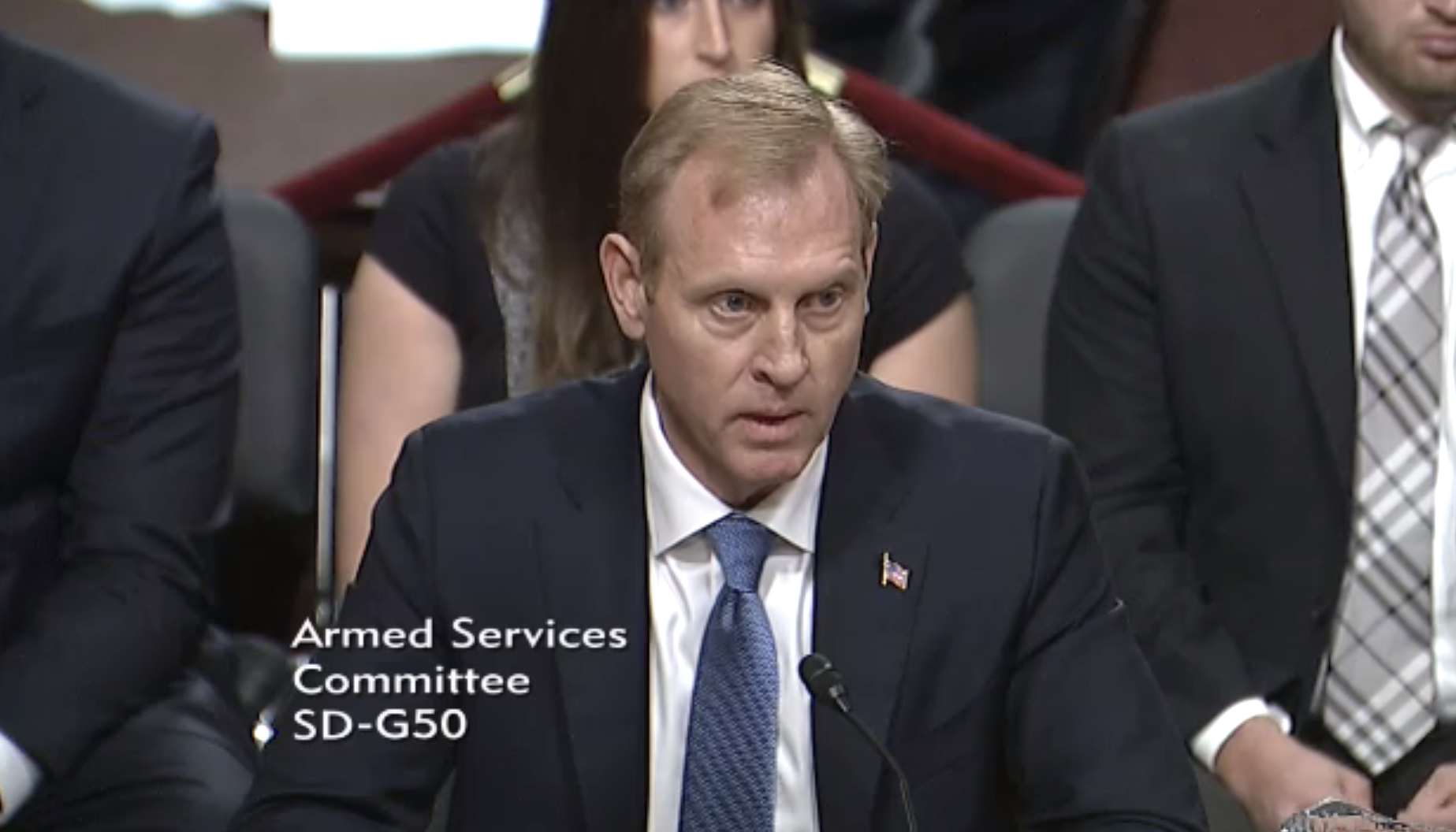
Patrick Shanahan, testifies before the Senate Armed Services Committee on June 20, 2017, during his confirmation hearing to be the next Deputy Defense Secretary. Screenshot photo.
Senate Armed Services Committee Chairman John McCain (R-Ariz.) sharply questioned Deputy Defense Secretary nominee Patrick Shanahan over his answers to senators’ questions and his background as a Boeing executive during his confirmation hearing before the committee Tuesday.
McCain, who suggested he was not yet ready to move the nomination forward, said some of Shanahan’s answers to the committee were “almost insulting” and that his experience at a top-five defense contractor did not prepare him to implement solutions to the Department of Defense’s acquisition woes.
When McCain asked early in the hearing whether Shanahan supported providing lethal arms to Ukrainian forces, Shanahan replied that he was unsure but would “examine this issue closely” if confirmed. McCain called the answer “very disappointing” and told Shanahan that it was “not an informed answer” on a topic that “is not a new issue.”
When Shanahan continued to offer careful answers to McCain’s queries, the chairman suggested the nominee was being “condescending,” and he threatened to “not take your name up for a vote before this committee” if Shanahan continued to avoid questions. Once again, after Shanahan told Sen. Deb Fischer (R-Neb.) that he does not have “any specific recommendations” on potential responses to Russia’s violation of the Intermediate-Range Nuclear Forces treaty, McCain intervened. “We expect straightforward answers, and you just ducked every question Sen. Fischer asked you,” he told Shanahan.
Shanahan, who is currently senior vice president for supply chain and operations at Boeing, also faced questions about how he would handle potential conflicts of interest when the DOD makes contract decisions in relation to his former employer. He promised that he would “divest all ties with Boeing” except his retirement account, and that he would “not deal with any matter related to Boeing” unless cleared under Department ethics rules.
McCain was not satisfied. “Frankly, I’m not overjoyed that you came from” one of the five corporations that receive 90 percent of DOD business, McCain said. “That’s not what our founding fathers had in mind.”
When Sen. Tom Cotton (R-Ark.) asked Shanahan how he could be effective in a key department leadership role if forced to recuse himself from matters related to a major defense contractor, Shanahan said, “In my view I could provide general guidance … without getting into the specifics of programs.”
Shanahan also promised that he would not allow his business ties to influence his decision-making for the DOD. “I am 1,000 percent committed to the department and to delivering on the reforms” that McCain and other lawmakers have advocated.
McCain was not convinced by the end of the hearing, when he instructed the nominee to “take a look at the responses you sent to this committee” and “see if you want to abridge some of them.” McCain continued to say that “somehow over the last several years, this committee seems to have been treated as sort of a rubber stamp.” He reminded Shanahan that the committee has a constitutional duty to offer advice and consent to the executive branch.
While McCain insisted that, “I want to work with this administration, I want to work with this President, I want to work with the new Secretary of Defense,” he also made clear that, “I’m not going to give him a team that is business as usual.”